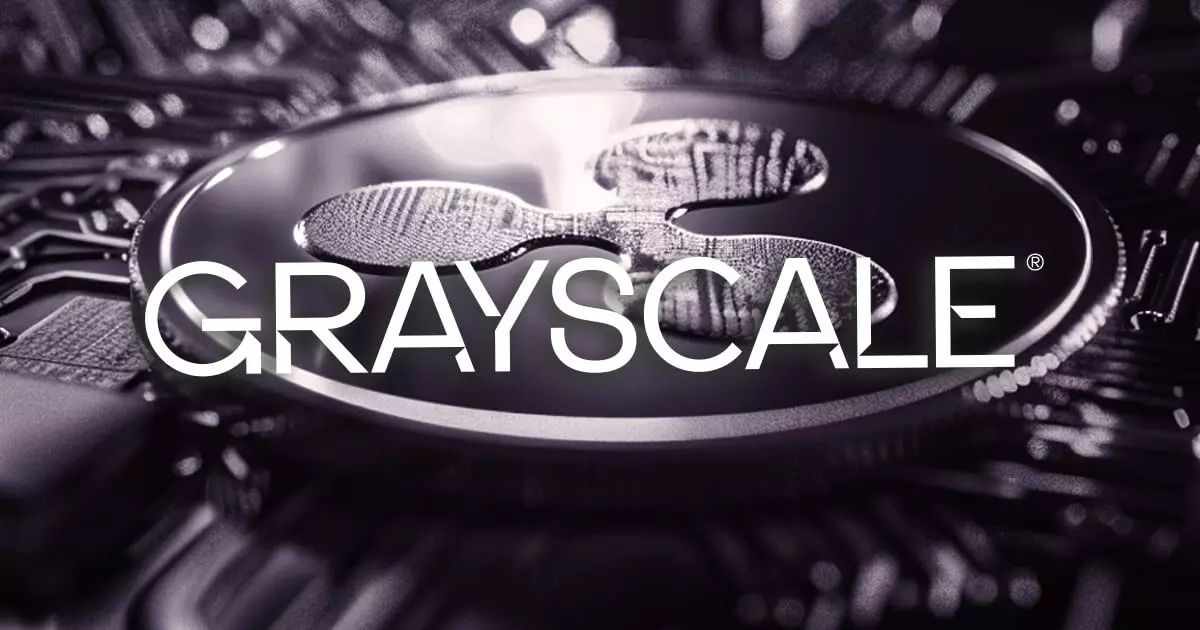On January 30, Grayscale made headlines by submitting a 19b-4 Form to the New York Stock Exchange (NYSE), signifying its intent to transition its XRP Trust into an exchange-traded fund (ETF). Initially launched on September 12, the Grayscale XRP Trust currently manages assets totaling $16 million, constituting a mere 1.2% of all XRP exchange-traded products (ETPs) in circulation, as reported by CoinShares. This significant milestone has stirred energetic discussions within the cryptocurrency community regarding the feasibility and implications of an XRP ETF, particularly as such products continue to gain traction in the financial market.
Recent projections from financial giant JPMorgan suggested that XRP ETPs could potentially pull in investments ranging from $4 billion to $8 billion. These forecasts were drawn from a comparative analysis utilizing the market capitalizations of established cryptocurrencies like Bitcoin (BTC) and Ethereum (ETH). The enthusiasm surrounding potential market inflows reflects a broader trend of increasing institutional interest in cryptocurrency assets. Nevertheless, the path to an approved XRP ETF remains fraught with challenges, primarily due to regulatory hurdles that have historically plagued cryptocurrency products.
One of the primary criticisms against the approval of an XRP ETF revolves around the absence of established futures contracts for XRP. However, the recent emergence of a leaked page from the Chicago Mercantile Exchange (CME) hinting at the potential launch of XRP and Solana (SOL) futures on February 10 has introduced new dynamics into the conversation. Despite the subsequent removal of this information and the lack of an official confirmation, it has nonetheless reignited discussions about the readiness of XRP for more formalized trading structures.
Financial analysts from Bloomberg, including Eric Balchunas and James Seyffart, have speculated about a forthcoming wave of crypto ETFs this year. While they foresee opportunities for XRP funds, they caution that regulatory concerns, particularly those rooted in ongoing lawsuits from the US Securities and Exchange Commission (SEC) regarding XRP’s status as an unregistered security, may delay approval.
In a development that could alter the regulatory landscape further, reports have emerged indicating that former President Donald Trump is in discussions with Ripple to explore the inclusion of XRP, USD Coin (USDC), and SOL in a proposed national digital asset stockpile. Such political engagement with pivotal players in the cryptocurrency sector may signal a willingness to reevaluate the existing regulatory framework, potentially fostering a more favorable environment for the approval of XRP ETFs.
As the cryptocurrency universe continues its rapid evolution, Grayscale’s XRP Trust is poised at the intersection of innovation and regulation. The future for both XRP and similar assets looks promising, although the journey towards acceptance as an ETF will require navigating complex regulatory waters. With several other firms—包括 Bitwise, Canary Capital, 21Shares, WisdomTree, and Rex & Osprey—waiting for their own spot XRP ETFs to be approved, the outcome will not only impact Grayscale but the broader cryptocurrency landscape as well. As we move forward, the coming months will critically determine the trajectory of XRP in the realm of financial products.



















Leave a Reply